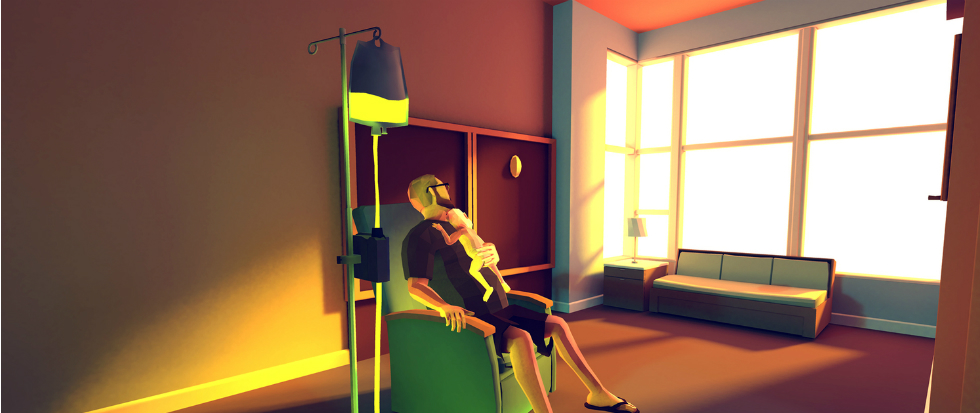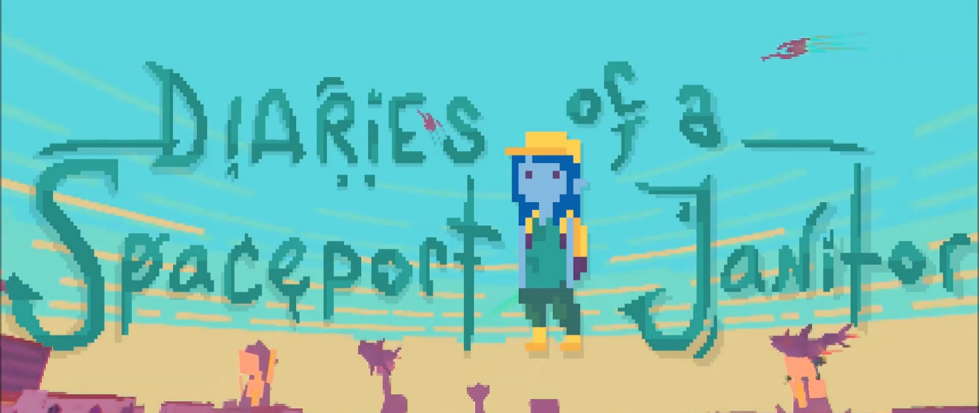
My Dragon Cancer
“This is certainly the first time I have ever worked on a project where players were afraid or unwilling to even approach it, much less play it.” Ryan Green tells me over e-mail when I ask him about the response to That Dragon, Cancer.
That Dragon, Cancer is being billed by some as a deeply emotional story about one family’s response to the diagnosis of their son’s cancer, and its terminal status. It hits as especially powerful because it is a true story – memoir turned game.
I had asked Ryan about what it was like to specifically make a game that people could either interact with, or not, because of their own struggles with the disease. It was a question close to my heart, because I don’t think I’ll ever be able to play the game.
“Heavy question,” I ask my sister, “But do you know what year Mamaw died?”
The how is not really a question, of course. In my family, you die of cancer. We don’t go down easy, Wallace’s. We stick on the end of morphine drips, eek out our final days in a hazy fog long after we’ve had those quiet talks with doctors in too-cold hospital rooms –“It’s time to start saying your goodbyes.” Prior to that there are surgeries and chemo and hair loss, moments where your life expectancy drops from years to months to days. When I was younger and filling out medical history forms I would just put “cancer: everyone” to save time.
When you live in a family affected by cancer, you learn a different vernacular; jargon infected with gleaming black cancer wards, and knowledge gleaned from discussions with doctors. Metastasize, carcinogen, remission. You learn to talk and learn in hospital waiting rooms. Lung cancer often metastasizes to the brain. They name your cancer by where it first appears – breast cancer is breast cancer even if it has spread all over your body. I remember when my father gave my mother 5 red roses on a day out of the blue. I didn’t understand at the time. She’d been five years cancer free, and your odds that you won’t have a remission go up when you’ve hit those five years.
My Mamaw was the first death I witnessed, though not the last. She was a woman I barely remember – though she had long black hair and loved Christmas and had a fruit tree in her yard. After people pass, we break them down into these tiny boxes of things that can’t possibly encompass our own grief, and then we stow those boxes away so that we can cry over keyboards later when we remember the little things (she hung candy canes from the ceiling like decorations.)
Cancer is the first thing I remember being truly afraid of. Not like Jumanji drums or the X-Files theme music that would seep in through the walls of my bedroom, but worse. Cancer blackened lungs and stole away my family’s joy. When my grandmother died in her late fifties, I was there when she breathed her last, watched as the room broke in a sudden swell of emotion and destruction. Gone. It doesn’t particularly matter how death comes, but when you have a face and name to the villain, it gives aim to your grief, and specificity to your own fear.
When I heard the title That Dragon, Cancer I knew I would never play it. I don’t have the strongest relationship with media that discusses cancer, an idea that Ryan himself echoes when I talk to him; “I actually fully understand the sentiment. During Joel’s illness I found that I avoided films about childhood cancer.” Darren Aronofsky’s fantastic and strange reality warping tale about a man’s struggle with his wife’s terminal cancer leaves me sobbing in the back row. Just the trailer for That Dragon, Cancer leaves me emotionally raw and aching.
“There is a season for everything,” Ryan tells me. His grief is a reminder of his loss, yes, but it’s a reminder of his child as well. His grief is different from my own, his relationship no less important but different in the way that all people are.
He writes:
For me, on this side of Joel’s death, I long to be reminded of him, and so I don’t mind sad films, or watching home videos or working on the game. I like the feeling of grief because it speaks to me of my love for him and missing him. Time pulls me away from him far faster than I had hoped. After his death I dreamt a few times that Joel had resurrected and he was still with us. I long for those dreams now, even though waking up is devastating.
“Yes,” he tells me, “people share their stories. I love it. I love when people review the game and share their heart, I treasure the exchange. It feels like a sacred thing.”
Amanda Hudgins is an occasional writer based out of Lexington, KY and sometimes writes for her interactive fiction publication Storycade. You can find her on Twitter at @barelyconcealed





